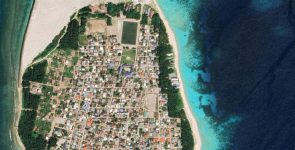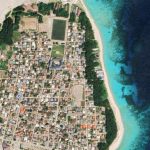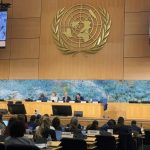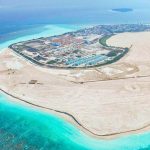
Approximately 80 fishermen have staged a protest near the Maldives Industrial Fisheries Company Ltd (MIFCO) harbour, demanding payment for their catch. The protest, which began last evening, continues today as frustrations mount over delayed payments.
The fishermen, voicing their grievances over unpaid dues, have threatened to escalate their actions if their demands are not met. According to the police, the protesters have warned that they will forcibly remove senior employees from the Addu Fisheries Complex and disrupt fish preparation processes should their calls for proper response go unheeded.
މަސްވެރިން ހައްގު ލާރި ހޯދަން ކުރާ މަސައްކަތް
— 𝔐𝔦𝔯𝔷𝔞𝔞𝔤 (@MirzaagMV) June 22, 2024
އައްޑޫ ފިޝަރީޒް ކޮމްޕްލެކްސް ގެ ދިދަ މިހާރުވަނީ ބަދަލުވެފަ މިހާރު ހުރީ މަސްވެރިންގެ އިހުސާސް ރަމްޒު ކޮށްދޭ ދިދައެއް #މަސްވެރިންގެލާރި #ކޮބާ pic.twitter.com/x4NTMqUb9x
The protest comes after a period of over one and a half months during which payments for fish weighed at MIFCO have been delayed. The unpaid dues have now accumulated to MVR 80 million (USD 5.2 million). The fishermen’s frustration boiled over last evening, leading to a demonstration near the complex.
In response to the mounting pressure, MIFCO announced that it had deposited MVR 46 million (USD 2,985,357.68) towards the outstanding payments owed to the fishermen last week. However, this partial payment has not alleviated the discontent among the fishing community.
President Dr Mohamed Muizzu had earlier committed to expediting payments within 48 hours of fish processing. Despite this assurance, the Minister of Fisheries and Ocean Resources, Ahmed Shiyam, stated yesterday that fulfilling such promises would be challenging without first addressing the financial constraints faced by both the State and MIFCO.
Minister Shiyam highlighted the substantial financial backlog inherited by the current administration, noting that over MVR 250 million (USD 16.2 million) had not been paid to fishermen when President Muizzu assumed office. He added that the government has managed to disburse over MVR 850 million (USD 55.2 million) to fishermen within the first six months of the new administration.
The protest is set to continue until 12:00 hrs today, with the fishermen resolute in their demand for immediate payment of the remaining dues. The situation remains tense as the authorities and MIFCO work towards a resolution to the ongoing crisis.












